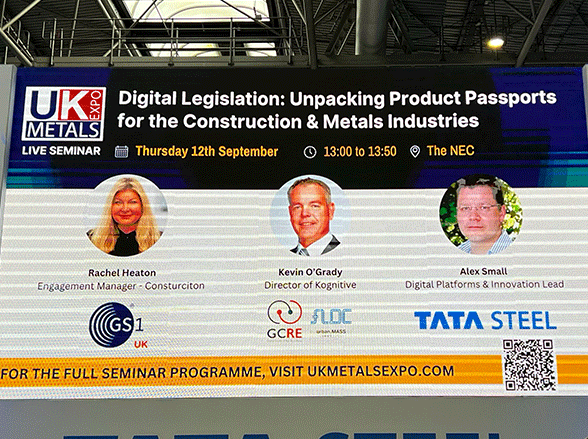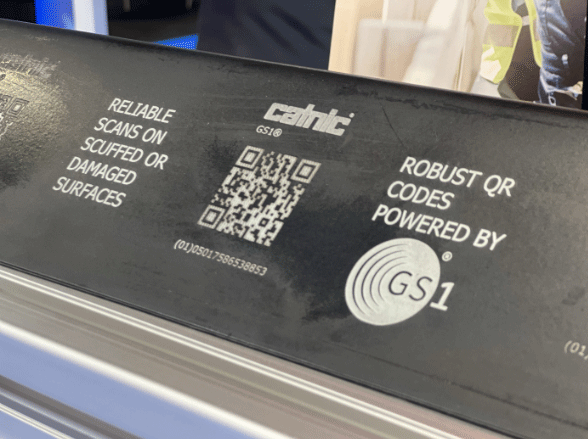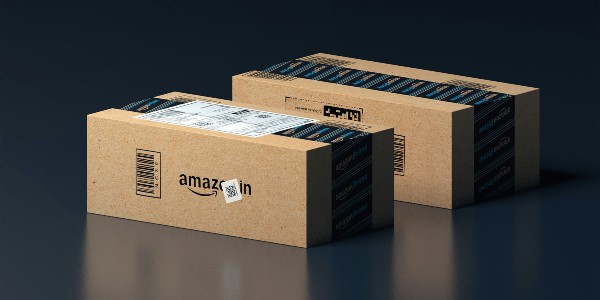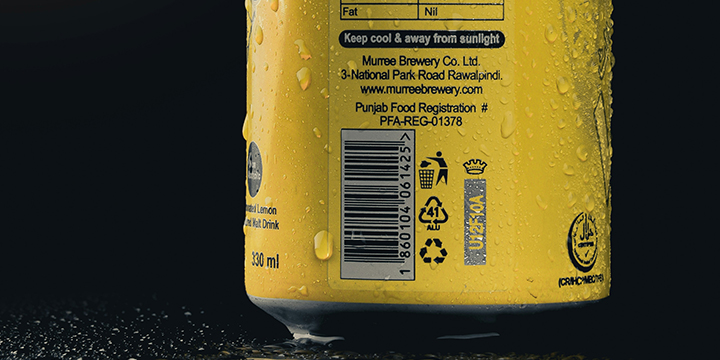September 17, 2024
Highlighting the transformative potential of QR codes powered by GS1 in the metals and construction industries, this demonstration is a testament to GS1 UK's commitment to driving digital innovation and enhancing supply chain transparency through the application of GS1 standards in industrial materials.
Innovative collaboration
REA JET, a key partner of GS1 UK known for its expertise in etching technology, played a central role in this demonstration. At the expo, REA JET demonstrated its cutting-edge capability to etch QR codes onto metal products, using steel provided by Tata Steel.
This steel product serves as the canvas for the etched QR code powered by GS1, showcasing how GS1 standards can be seamlessly applied to raw materials like steel.

A new era of product identification
The core objective of the demo is to highlight the advantages QR codes powered by GS1 offer to the construction industry. Each QR code etched that is onto the steel carries a GS1 Digital Link that includes a Global Trade Item Number (GTIN). When scanned, this directs users to the construction SmartScan app, developed by Salford University.
The construction SmartScan app, equipped with a GS1-conformant resolver, provides users with instant access to detailed product information linked to the GTIN. This enhanced data accessibility allows for improved product traceability and supply chain transparency, addressing key challenges in the construction sector.
Enhancing supply chain transparency
The demonstration aims to illustrate how QR codes powered by GS1 can revolutionise the construction industry by enhancing product traceability, making information more accessible, and increasing overall supply chain transparency.
This aligns with the industry's growing demand for greater visibility and accountability throughout the supply chain, particularly in light of evolving regulatory requirements and the push towards digital transformation.

Spotlight on digital legislation and product passports
In addition to the demo, GS1 UK's engagement manager, Rachel Heaton, featured in a panel session titled "Digital legislation: unpacking product passports for the construction and metals industries." The session delved into the critical role of digital legislation in the metals and construction sectors, with a focus on digital product passports and their impact on supply chain efficiency and compliance.
The panel included insights from Alex Small, digital platforms & innovation lead at Tata Steel UK, and Kevin O’Grady, director of Kognitive and CEO of Urban.MASS. Together, they explored how digital innovations, including those powered by GS1 standards, can help industries adapt to new legislative demands and drive sustainable growth.

A glimpse into the future of construction and metals industries
GS1 UK's participation in the Metals Expo underscores our dedication to fostering collaboration and innovation across industry. By showcasing how GS1 standards can be applied to industrial materials like steel, we want to lay solid foundations for a future where enhanced product identification and traceability are not just benefits, but industry standards.
Our UK Metals Expo demonstration represents more than just a technological showcase. It is a clear message to the construction and metals industries: embracing digital transformation and GS1 standards can unlock new levels of efficiency, transparency, and compliance, paving the way for a more connected and sustainable future.




